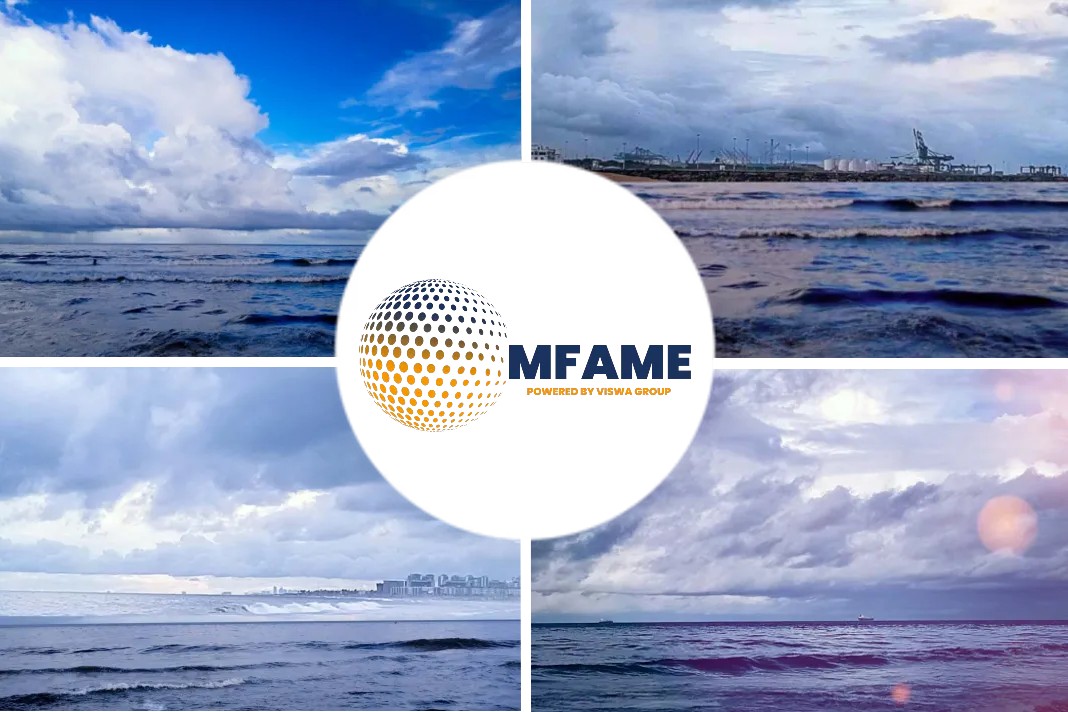- Methane emissions to become a challenge for shipping industry, says Environmental Defense Fund.
- The United Nations Climate Change Conference, also known as COP26, will discuss a pledge to reduce methane emissions when it meets in Glasgow on October 31.
A Lloyd’s List news source by Michelle Wiese Bockmann says that focus on methane slip from LNG-fuelled ships intensifies.
Focus on methane emissions
REGULATORS have turned their focus on methane emissions from ships fuelled by liquefied natural gas, which could undermine shipowners’ investment in the so-called transition fuel, according to the US-based Environment Defense Fund.
Mark Brownstein, senior vice-president of the environmental organisation, said the carbon footprint of LNG was only “part of the story.”
So-called methane slip is unburned fuel that is not fully combusted in ships’ engines, with the rise attributed to greater numbers of vessels using LNG as a fuel.
Fossil fuel operations
Fossil fuel operations generated 120m tonnes of methane in 2020 according to research from the International Energy Agency, nearly one-third of emissions from human activity.
Speaking at the Copenhagen launch of an industry transition strategy, Mr Brownstein said methane leaks remained a significant challenge for the oil and gas industry and would also become a challenge for the shipping industry.
“There would be nothing worse (for a shipowner) than proceeding down the road of decarbonisation and investing in new technologies and new fuels only to find that you are not getting the environmental and carbon benefits that you would expect or you would want,” he told the Maersk Mc-Kinney Møller Center for Zero-Carbon Shipping.
“There are climate challenges associated with methane which drives a quarter of the warming that our planet is experiencing right now.”
Industry transition strategy in Copenhagen
The centre launched its industry transition strategy in Copenhagen, with participation from shipowner partners AP Moller-Maersk and NYK Line, both perceived as first-movers in the marine energy fuel transition, but with different strategies for their fleets.
AP Moller-Maersk has eschewed using LNG as a transition fuel; NYK Line will turn to LNG as an interim fuel but is investing in two ammonia-powered ships.
LNG-fuelled ships are said to reduce carbon dioxide emissions by as much as 20% compared with marine fuel oils, depending on engine type, although some observers dispute this claim.
“We plan to increase the use of LNG as a marine fuel,” said Toshi Nakamura, executive officer of NYK Line’s energy division and technical headquarters.
Research and development activities
At the same time, NYK was expediting research and development activities for the technical development of a deepsea, ammonia-fuelled ship and a concept design for an ammonia-ready LNG fuelled vessel. The first would be ready in the “late 2020s”.
Other ship types, including car carriers and larger bulk carriers, would not start to use ammonia until the 2030s, he estimated.
Shipping’s methane emissions have increased by about 150% between 2012 and 2018, compared with a 10% rise in carbon dioxide, according to tanker research group Alphatanker, citing an International Maritime Organization study.
The UK and US are leading a global methane pledge to reduce emissions linked to human activity by 30% by 2030 from 2020 levels to which the 27 member states of the European Union and 10 others are already signatory.
Methane slip will be discussed at the COP26 meeting in Glasgow, which begins on October 31.
“For the first time, there will be a highlight on methane emissions,” Mr Brownstein said. “That is important for this conversation because methane is one of the fuels the shipping industry is looking into.
“It is one of the feedstocks for producing hydrogen, and so this really puts front and centre the idea that we need to make significant reductions of this other greenhouse gas alongside everything that we are doing on CO2, so I expect that that is going to be something really powerful and new and worth our focus.”
About 180bn cu m of gas escapes each year to the atmosphere from fossil fuel operations — equivalent to Russia’s gas exports to Europe, the IEA’s chief energy economist Tim Gold told a presentation.
Emissions from fossil fuels
“Emissions from fossil fuels will have to do most of the heavy lifting to get to the broader target,” he said.
The IEA’s presentation was separate to the one held by the Maersk Mc-Kinney Møller organisation, but both reflect a number of pre-COP26 energy briefings now under way before the meeting in Glasgow.
There have been very few studies on methane emissions on ships, according to Mr Brownstein.
Studies on LNG-fuelled trucks showed that the emissions undid many of the benefits from switching to the fuel, he said.
“We need to make sure that the natural gas that supplies that LNG, wherever it comes from in the world, that it is being manufactured and shipped with virtually no emissions, that’s the challenge.”
Did you subscribe to our daily newsletter?
It’s Free! Click here to Subscribe!
Source: Lloyd’s List
















